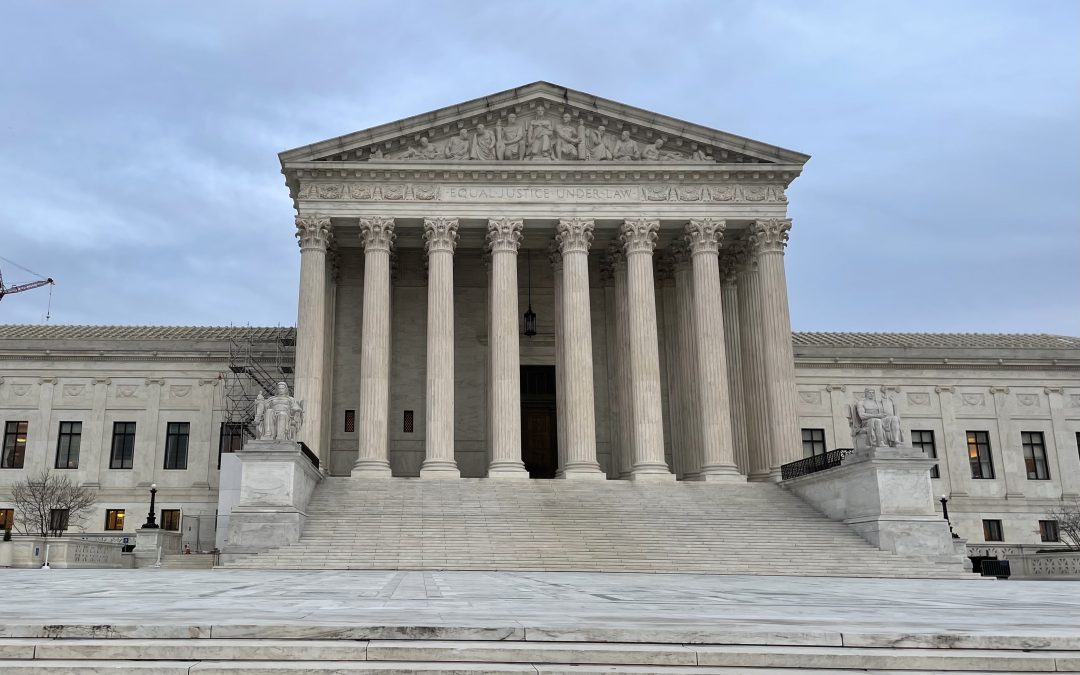WASHINGTON — The U.S. Supreme Court heard oral arguments Wednesday in a case with possible ramifications for Americans with disabilities, but some justices questioned whether it should be dropped instead.
If the Supreme Court does rule, that decision could redefine the role of an American with Disabilities Act tester — a person who checks whether businesses or other entities comply with the ADA.
At issue is whether an ADA tester has the right to sue when a public place fails to provide accessibility information on its website, even if the tester doesn’t intend to visit the place.
The case began in 2020 with Deborah Laufer, a Floridian and self-appointed ADA tester. Laufer is visually impaired, has limited use of her hands, and uses a wheelchair or cane. Any time she travels, she needs the hotel to meet certain requirements.
Since 2018, Laufer has filed more than 600 ADA complaints because of her work as a tester. When she came across the Acheson Hotels website, she said, she didn’t see any mention of an accessible room or the option to book one.
Laufer initially lost her district court lawsuit when the judge ruled she lacked standing because she didn’t intend to visit the hotel. However, an appellate court reversed the lower court’s decision.
Justices debated Wednesday what plaintiffs need to allege to show they suffered an injury — a requirement the hotel’s lawyers asserted had to be met to establish legal standing.
Conservative justices Neil Gorsuch and Brett Kavanaugh expressed skepticism, suggesting that obtaining information online did not necessarily equate to visiting the hotel.
And Justice Ketanji Brown Jackson compared remote testing to having a Black person observing a restaurant refusing to serve Black people, but not actually sitting down and ordering a meal.
Justice Sonia Sotomayor, also a liberal, took an opposing view, saying, “If I go on a drive to a place and there’s a sign up that says ‘no disabled person is welcome’ I’ve been discriminated against, correct?”
By the time justices heard the arguments in the case, Acheson Hotels LLC v. Laufer, a lot had changed since they agreed to take it in March.
After the initial lawsuit, Laufer withdrew from the case, one of her lawyers was disciplined, Acheson stopped operating the hotel in question and the hotel updated its website to comply with ADA requirements.
Justice Elena Kagan asked the counsel for Acheson why a court should use this “dead” case to establish an important precedent.
“This is like, dead, dead, dead in all the ways that something can be dead,” Kagan said.
Erica Ross argued for the Department of Justice, which was present as an impartial adviser. Ross suggested the court consider this case moot and wait for a future case to decide whether a tester has legal standing.
“This is a particularly poor case to do it in,” she said.
However, Chief Justice John Roberts raised concerns that by declaring the case moot, the Supreme Court would encourage other lawsuits that emulate Laufer’s.
Advocates said it’s a misconception that people with disabilities are eager to file ADA cases.
These cases are stressful with attorney and litigation fees that aren’t guaranteed, according to Michelle Uzeta, deputy legal director of the Disability Rights Education and Defense Fund, based in Berkeley, Calif.
That group was one of 18 organizations that supported Laufer in a friend-of-the-court brief.
“It just takes a certain type of person to villainize ADA plaintiffs and their attorneys when the businesses at issue haven’t been complying with the law,” she said.
Uzeta said ADA testers are essential to pressure private businesses to comply with the disability law. If the Supreme Court limited their standing, that could cause serious regression.
“If there aren’t testers, enforcing the law, the law is just not going to be enforced to the same degree it is now. And that lack of enforcement is just going to result in continued barriers to people with disabilities in the community, frustration of the goals and purpose of the ADA,” she said.


